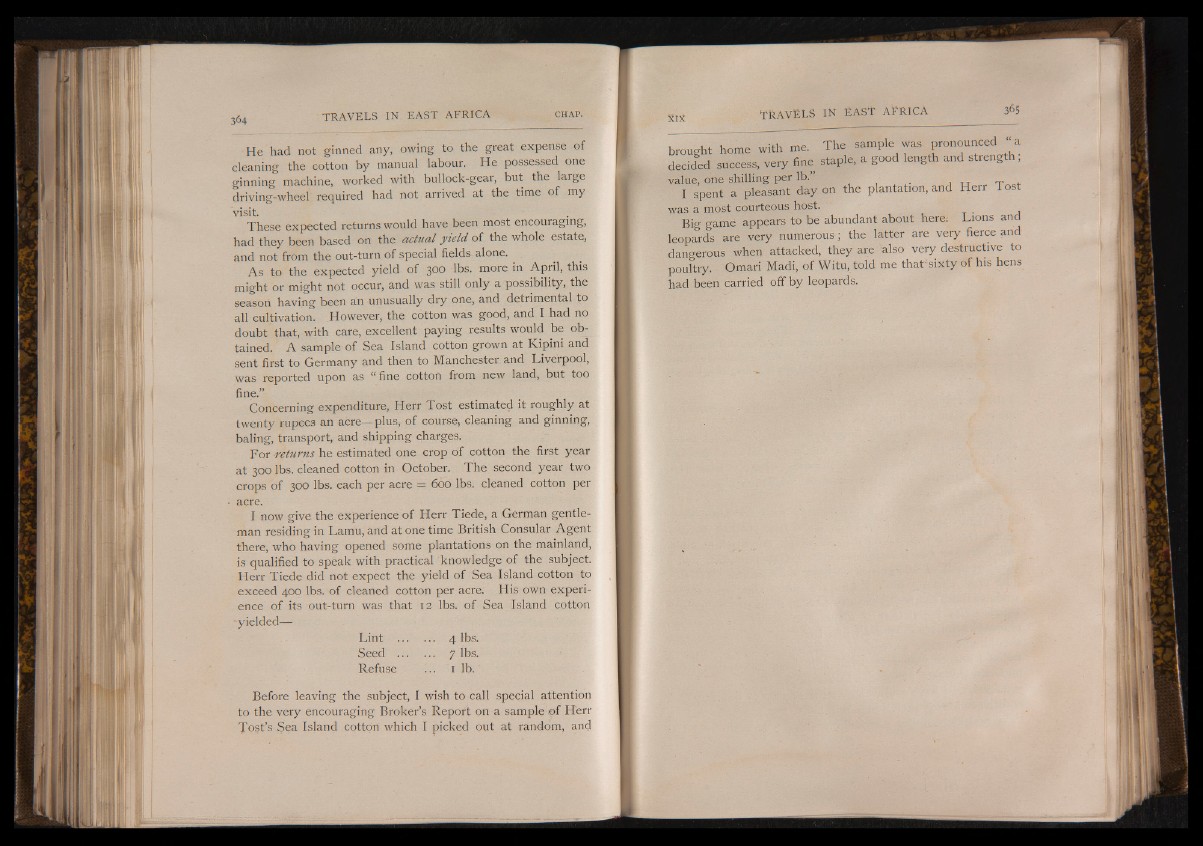
He had not ginned any, owing to the great expense of
cleaning the cotton by manual labour. He possessed one
ginning machine, worked with bullock-gear, but the large
driving-wheel required had not arrived at the time of my
visit; . ' .
These expected returns would have been most encoui aging,
had they been based on the actual yield of the whole estate,
and not from the out-turn of special fields alone.
As to the expected yield of 300 lbs. more in April, this
might or might not occur, and was still only a possibility, the
season having been an unusually dry one, and detrimental to
all cultivation. However, the cotton was good, and I had no
doubt that, with care, excellent paying results would be obtained.
A sample of Sea Island cotton grown at Kipini and
sent first to Germany and then to Manchester and Liverpool,
was reported upon as “ fine cotton from new land, but too
fine.”
Concerning expenditure, Herr Tost estimated it roughly at
twenty rupees an acre— plus, of course, cleaning and ginning,
baling, transport, and shipping charges.
For returns he estimated one crop of cotton the first year
at 300 lbs. cleaned cotton in October. The second year two
crops of 300 lbs. each per acre ’= 600 lbs. cleaned cotton per
acre.
I now give the experience of Herr Tiede, a German gentleman
residing in Lamu, and at one time British Consular Agent
there, who having opened some plantations on the mainland,
is qualified to speak with practical knowledge of the subject.
Herr Tiede did not expect the yield of Sea Island cotton to
exceed 400 lbs. of cleaned cotton per acre. His own experience
of its out-turn was that 12 lbs. of Sea Island cotton
-yielded—
Lint ........... 4 lbs.
Seed ........... 7 lbs.
Refuse ... 1 lb.
Before leaving the subject, I wish to call special attention
to the very encouraging Broker’s Report on a sample of Herr
Tost’s Sea Island cotton which I picked out at random, and
brought home with me. The sample was pronounced -a
decided success, very fine staple, a good length and strength,
value, one shilling per lb.” , , .
I spent a pleasant day on the plantation, and Herr lo s t
was a most courteous host.
Big game appears to be abundant about here: Lions and
leopards are very numerous ; the latter are very fierce and
dangerous when attacked, they are also very destructive to
poultry. Omari Madi, of Witu, told me that sixty of his hens
had been carried off by leopards.